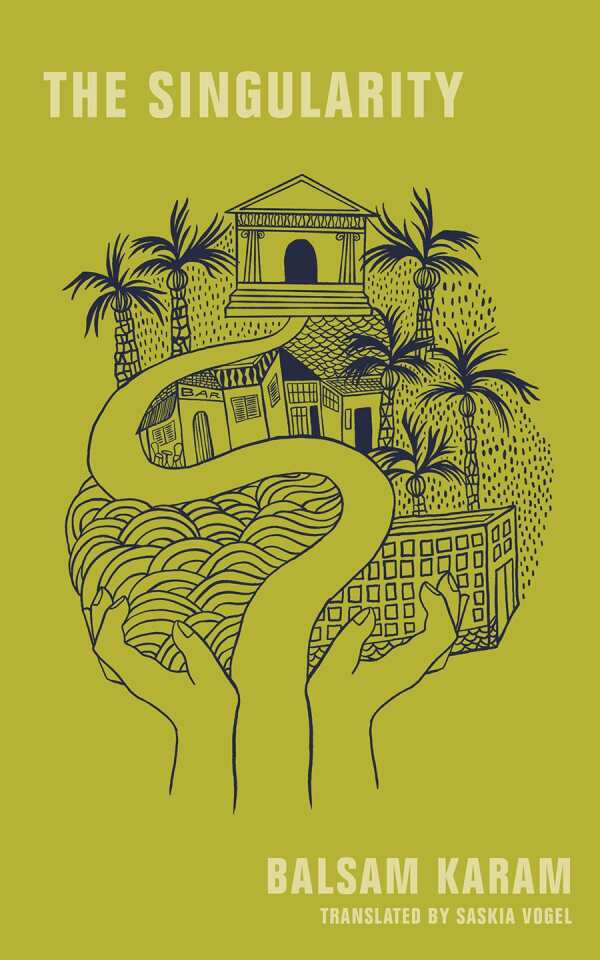The Singularity
In Balsam Karam’s timely novel The Singularity, the lives of two refugee women intersect with anonymous resonance.
In an unnamed coastal city, a mother searches for her seventeen-year-old daughter, handing out flyers and begging for information. Her daughter, the Missing One, has not been seen since she left her job in the seaside area of the city known as the “corniche.” The Missing One and her mother, sisters, and grandmother are refugees; their home has been demolished, and they live among the ruins, dependent on relief packages and the charity of a local grocer. Beyond this deprivation is the “glittering” corniche, busy with vacationing tourists.
When the mother’s prolonged desperation leads to suicide, a pregnant younger woman walking toward the corniche witnesses her death. At that moment, the younger woman’s baby seems to die as well. An ultrasound later reveals that the fetus no longer has a heartbeat.
Though the younger woman came to the country on a business trip, she was also once a war refugee. Her uprooted family resettled in a distant, perhaps Scandinavian region; she learned a new language and adjusted to a new culture in a sometimes hostile environment. After she loses her child, she begins to regret her assimilation; she worries that her child may have died as a sort of penance.
The book’s omission of specific locations results in unnerving universality. Stories of abduction and sex trafficking, bombing deaths, and women tortured in prisons continue through generations. And while the younger woman emerged from her earlier migratory displacement, she is led back to witness the mother’s plight in a cycle of concentric fate.
Mesmerizing and harrowing, The Singularity is a novel of personal and cultural loss and anguished remembrance.
Reviewed by
Meg Nola
Disclosure: This article is not an endorsement, but a review. The publisher of this book provided free copies of the book to have their book reviewed by a professional reviewer. No fee was paid by the publisher for this review. Foreword Reviews only recommends books that we love. Foreword Magazine, Inc. is disclosing this in accordance with the Federal Trade Commission’s 16 CFR, Part 255.

